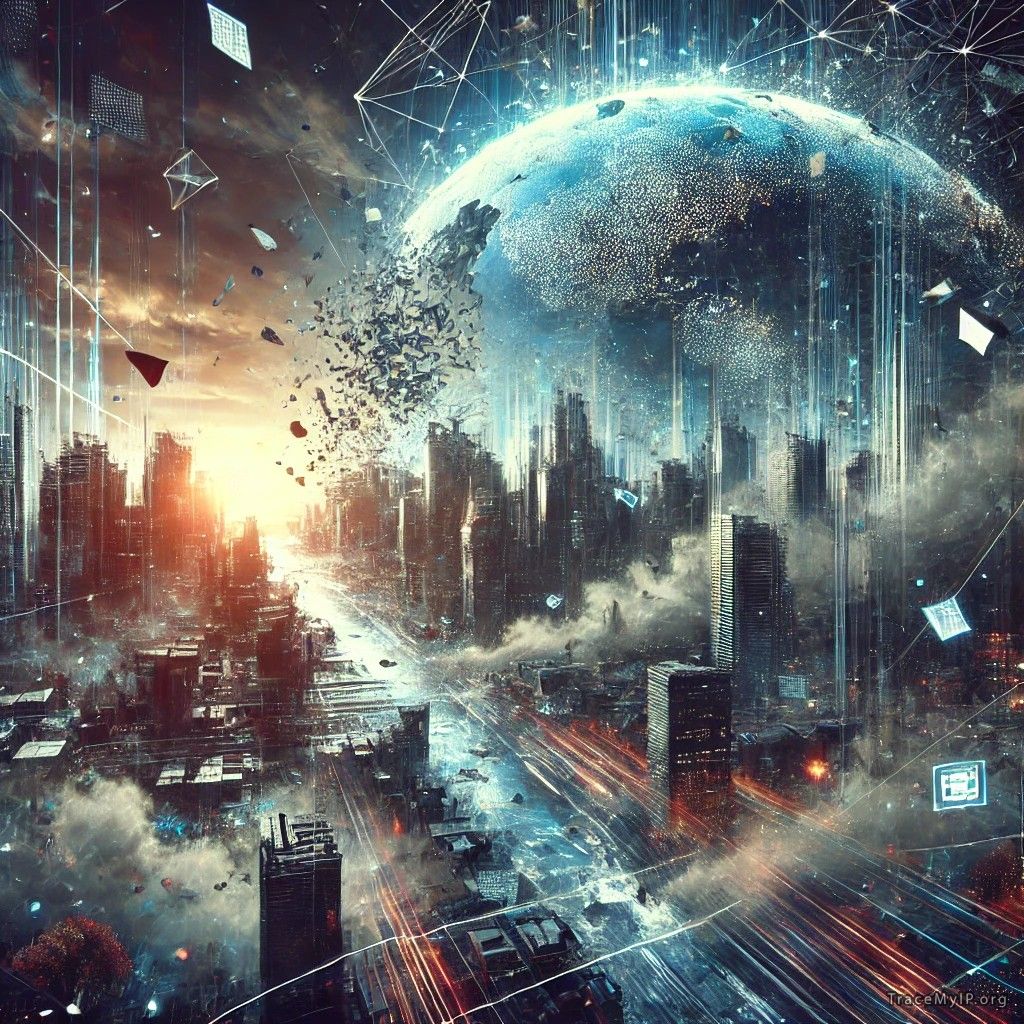What If the Internet Ended? Exploring Alternatives to a Digital Apocalypse
Imagine waking up one day to find the internet gone. No social media, no streaming services, no emails, no online banking. Just silence. For many, this scenario feels like the end of the world. The internet has become so ingrained in our daily lives that its disappearance would disrupt everything from communication to commerce. But what if the internet did end? What could replace it? And how would society adapt?
The internet’s collapse could happen for various reasons—cyberattacks, solar flares, or even geopolitical conflicts cutting off global connectivity. While it’s a terrifying thought, humanity has always found ways to adapt. In a post-internet world, we might see a return to older technologies, reimagined for the modern age.

One possible replacement could be a decentralized network of localized systems. Think of it as a patchwork of smaller, self-sustaining networks that operate independently but can connect when needed. These networks could rely on radio waves, mesh networks, or even satellite systems to share information. Unlike the centralized internet, this system would be harder to shut down entirely because there’s no single point of failure.
Sign up to instantly track website visitors IPs!
Another alternative could be the revival of analog technologies. Libraries, for instance, might once again become hubs of knowledge, with physical books and community archives replacing online databases. Postal services could see a resurgence as people return to sending letters instead of emails. Local newspapers and bulletin boards might replace social media as the primary source of news and community updates.
Interestingly, the end of the internet could also spark a renaissance of face-to-face interaction. Without the convenience of digital communication, people might prioritize in-person meetings, fostering stronger community bonds. Local markets and barter systems could replace e-commerce, encouraging sustainable living and reducing reliance on global supply chains.
Of course, transitioning away from the internet wouldn’t be easy. Entire industries would need to reinvent themselves, and the global economy would face unprecedented challenges. But humanity has a knack for resilience. We’ve survived world wars, pandemics, and natural disasters. The end of the internet would be no different—a monumental challenge, but not an insurmountable one.
The Role of Innovation in a Post-Internet World
Innovation would play a crucial role in shaping a post-internet society. Scientists and engineers might develop new communication technologies that are more resilient and less reliant on centralized infrastructure. For example, quantum communication networks could offer secure, high-speed data transfer without the vulnerabilities of traditional internet systems.
Governments and organizations might also invest in alternative energy sources to power these new networks, reducing dependence on fragile electrical grids. Solar-powered devices, for instance, could become the norm, ensuring that communication remains possible even in the face of widespread power outages.
A Return to Simplicity
In some ways, the end of the internet could bring about a simpler, more grounded way of life. Without the constant barrage of notifications and information overload, people might find more time for introspection and creativity. Art, music, and literature could flourish as individuals seek new ways to express themselves and connect with others.
While the internet has undoubtedly brought immense benefits, its hypothetical end could serve as a reminder of the importance of adaptability and human connection. It’s a thought experiment that challenges us to consider what truly matters in a world increasingly dominated by digital technology.

Who visits your website? Sign up to find out!
References and Sources
-
“The Internet Apocalypse: What Happens If the Web Goes Down?” by BBC Future
This article explores the potential consequences of a global internet shutdown and discusses possible alternatives.
URL: https://www.bbc.com/future/article/20211012-what-happens-if-the-internet-collapses -
“Decentralized Networks: The Future of Communication?” by Wired
Wired delves into the concept of decentralized networks and how they could replace traditional internet infrastructure.
URL: https://www.wired.com/story/decentralized-internet-alternatives -
“The Resilience of Analog Technologies in a Digital Age” by The Atlantic
This piece examines the enduring relevance of analog technologies and how they could make a comeback in a post-internet world.
URL: https://www.theatlantic.com/technology/archive/2021/03/analog-technology-resurgence/618246
